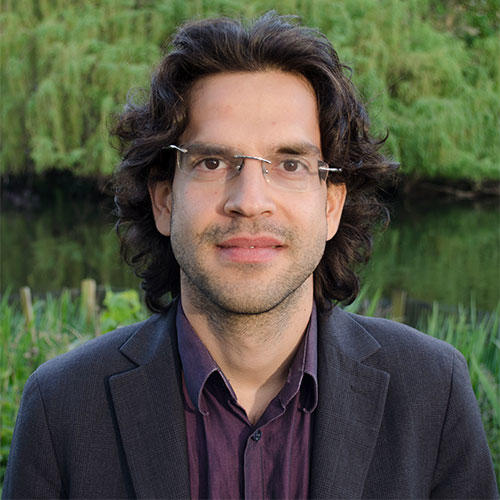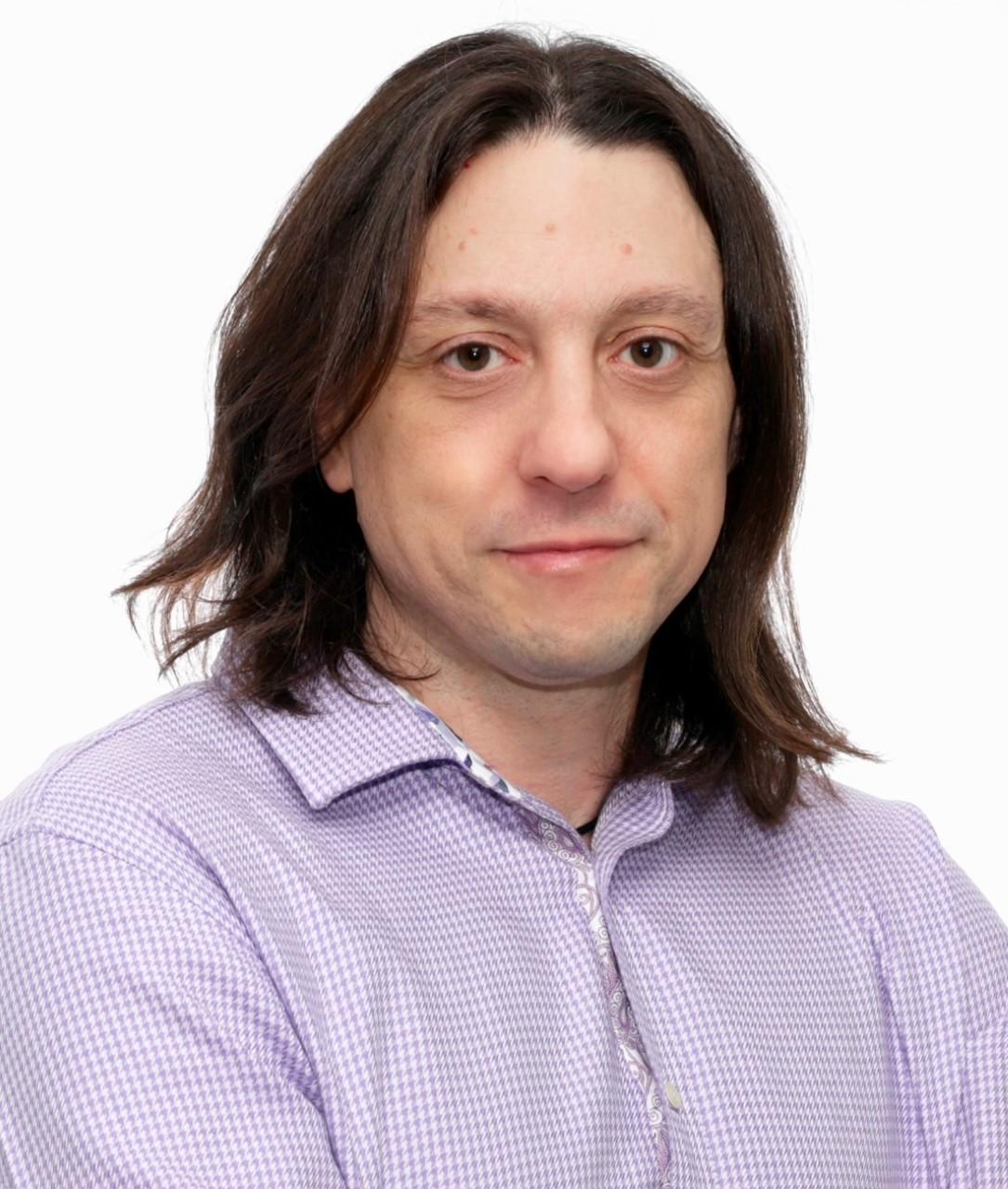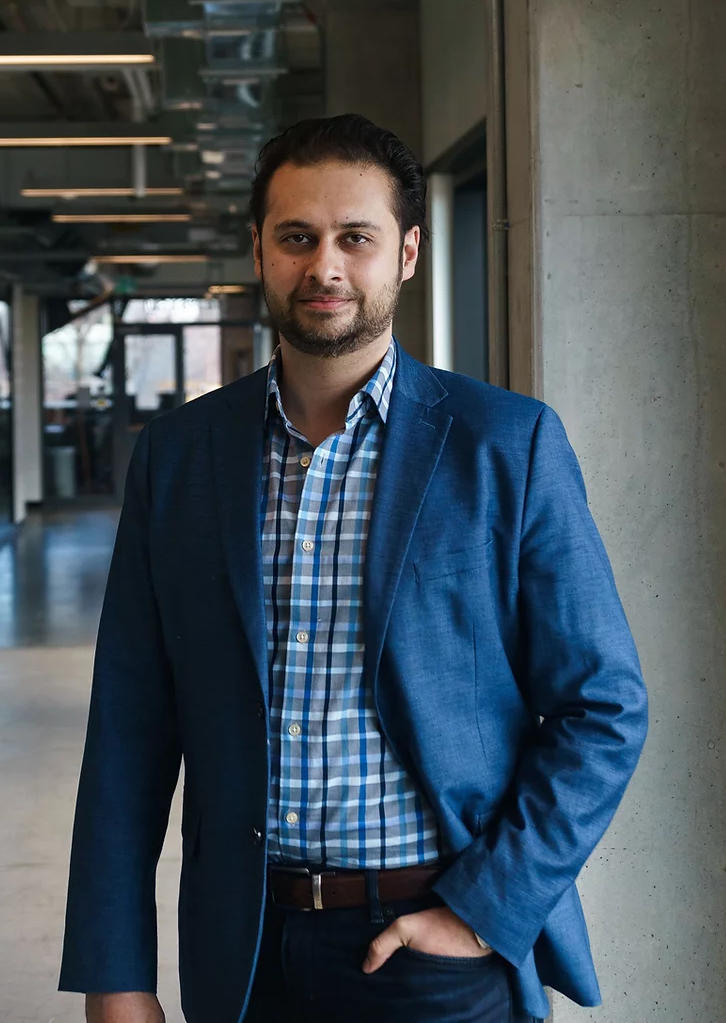Science New Professor Lecture
Spring 2023
Apr 26, 2023 — All day
Twice a year, the Faculty of Science showcases some of its newest recruits to the research and teaching faculty.
Description
Come hear about the researches of three of our new faculty members.
The 3 speakers will be:
-
Augusto Gerolin, Assistant Professor, Department of Mathematics and Statistics & Department of Chemistry and Biomolecular Sciences
- David Haziza, Professor, Department of Mathematics and Statistics
-
Rajendhran Rajakumar, Assistant Professor, Department of Biology

Augusto Gerolin
Mathematics and Statistics & Chemistry and Biomolecular Sciences
The Strong-interaction limit of Density Functional Theory
Abstract
Density Functional Theory (DFT) is the standard approach to quantum chemistry in simulations with more than a dozen electrons or so. The classical way of breaking the curse of dimensionality in DFT is through the so-called Kohn-Sham (KS) formalism, which has been extremely successful in predicting properties in materials science, chemistry and biochemistry. Despite its enormous success, KS DFT approximations fail to accurately predict the physics of systems in which electronic correlation plays a prominent role (e.g., transition metals, which are the workhorse of catalysis) and dispersion (van der Walls) interactions (e.g., hydrogen-bonding interaction in the DNA).
In this lecture, I will give a comprehensive overview of the topic, including the derivation of the so-called Strictly Correlated Electrons (SCE) functional from exact Hohenberg-Kohn-Levy-Lieb functional as well as basic aspects of SCE physics.
Biography
Augusto Gerolin is the Canada Research Chair in Artificial Intelligence at the Interface of Chemistry and Mathematics and an Assistant Professor appointed to the uOttawa Departments of Mathematics and Statistics and of Chemistry and Biomolecular Sciences. Augusto write lots more in his grant applications (with lots of help from the Research advisors) but here he feels he must mention only that he and all the group members are highly social and very happy to have a lunch with and talk to their colleagues.

David Haziza
Mathematics and Statistics
Some contributions to statistical inference for finite populations
Summary
Surveys are used to gather data on a usually small subset of a population. They are widely used by a variety of professions and disciplines including but not limited to national statistical offices (Statistics Canada); environmental, behavioral, and social sciences; academia; and polling market research firms. Typically, the aim is to estimate finite population parameters such as a population or a population proportion. In some cases, the interest lies in estimating more complex parameters such as quantiles and poverty indicators (e.g., the Gini coefficient). My program of focus on developing sampling and estimation procedures in the context of survey data. More specifically, a large part of my research is devoted to the treatment of missing data, which are ubiquitous in surveys. Recently, I have done some work on the use of machine learning methods in the context of missing survey data. Another part deals with the impact of influential units on point estimates. Finally, I am also interested in resampling methods (e.g., jackknife and bootstrap) that are widely used for estimating the variance of point estimators. In this presentation, I will provide a brief overview of some of our methodological contributions in the field of machine learning for survey data.
Biography
David Haziza received his PhD in Statistics from Carleton University in 2005. From 2000 to 2006, he worked as a methodologist at Statistics Canada. In 2006, he joined the Department of Mathematics and Statistics at the Université de Montréal, where he became a full professor in 2016. In 2020, David Haziza joined the Department of Mathematics and Statistics at the University of Ottawa. His research focuses on sampling methods and statistical inference methods in the context of finite populations. Since 2006, David Haziza has been working as a consultant for Statistics Canada where he spends one day per week.

Rajendhran Rajakumar
Biology
Ecological Evolutionary Developmental Biology of a Superorganism: From Cells to Societies
Summary
Ants are social insects that exhibit an incredible degree of phenotypic plasticity. During development, different environmental perturbations can permit a single genotype to give rise to an array of alternative phenotypes related to dramatic differences in morphology, longevity, reproduction and behavior. This environmental sensitivity is the basis for the diversity of complex ant caste systems. My work has taken a model clade approach, focusing on the hyperdiverse ant genera Camponotus and Pheidole, and more generally has sought to understand how the environment acts on development through the integration of hormones, pheromones, genes, and epigenetic mechanisms to generate both quantitative and qualitative phenotypic variation for selection to act on. Ants provide an Eco-Evo-Devo model to understand how organs and individuals intercommunicate to influence developmental processes, physiological homeostasis, and social interactions, in the context of a changing environment. Collectively, my lab at uOttawa aims to identify mechanisms and processes involved in generating phenotypic variation within and between species at biological levels spanning from cells and tissues to individuals and societies.
Biography
I am an Assistant Professor in the Department of Biology, and cross-appointed in the Department of Cellular & Molecular Medicine at uOttawa. I received my PhD at McGill University working with ants in the areas of developmental genetics & epigenetics within the emerging field of Ecological Evolutionary Developmental Biology. I next did an NSERC postdoctoral fellowship at the University of Florida expanding my expertise to include vertebrate developmental genetics and Evo-Devo. Finally, I did both a CIHR and a Charles King Biomedical postdoctoral fellowship at Harvard Medical School with the classic genetics model Drosophila melanogaster.